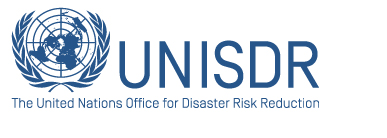The event was organized around the priorities set forth by the Hyogo Framework for Action (HFA 2005-2015), which guide the acting principles of the United Nations Office for Disaster Risk Reduction (UNISDR) and promote increased resilience of nations and communities to disasters, through a considerable reduction of loss, both in terms of human lives and the social, economic and environmental assets of communities and countries.
In this context, the event addressed issues such as the protection of critical infrastructure (dams and nuclear facilities), the application of the concept of business continuity in airport, commercial and security activities, and the contribution of information technology to protect physical assets and prepare for possible disasters.
Participants from the public, private and civil society sectors also demonstrated how they are working with the IRAM to finalize the publication of IRAM - ISO 22399 Safety of society - Guide for disaster preparedness and operational continuity management; IRAM -ISO 22301 Safety of society. Management systems for business continuity.Requirements, and the recently published IRAM-NFPA 1561 - Disaster management system for emergency services.
Participants also shared ideas for risk management such as the organization of crisis committees to plan and practice appropriate responses, strengthening links with partner organizations and the training of all involved to react appropriately in certain situations. At the end of the day, the meeting reinforced the concept that reduction, management and risk analysis are key to reducing vulnerability through effective actions to hazards that can compromise the continuity of operations of all sectors.
Of note, Mario Paonesa, Manager of Security for the Standardization Office of IRAM, participated in the last session of the Regional Platform for Disaster Risk Reduction, held in Santiago de Chile in November 2012. He presented the multidisciplinary approach of actors studying ISO standards such as public and private, industrial, commercial and emergency services sectors, contingency planning and critical infrastructure, among other sectors.
At present, companies are horizontal and in some cases based in different parts of the world, working in an interlinked manner. A loss in one country inevitably affects others, even when operating in different fields. The supply chain may be disrupted, as was the case after the tsunami in Japan and more recently during the floods in Indonesia, affecting the global economy of various electronic components.
Related links:
IRAM Participation in the Regional Platform for DRR (Chile 2012)
Presentation
Video




